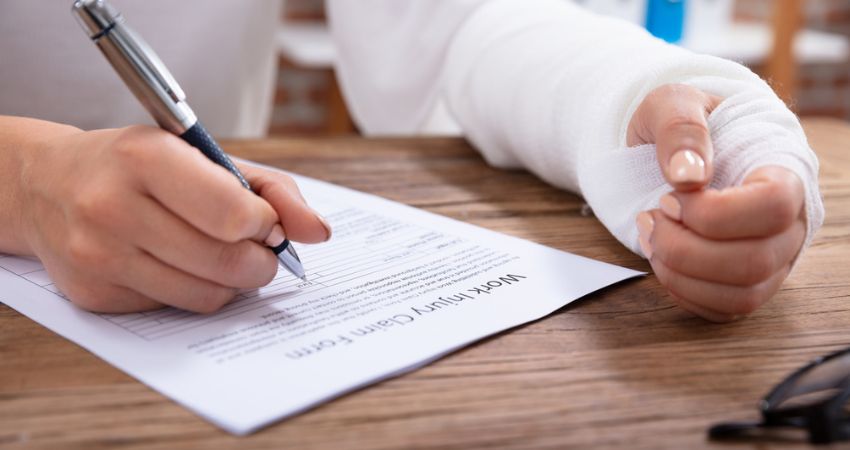Workplace Accident Compensation Claims Guide: Workplace accidents can have serious consequences, leading to injuries, financial losses, and emotional distress for employees. Navigating the process of filing a compensation claim after a workplace accident can be complex and overwhelming. This comprehensive guide aims to provide valuable insights and step-by-step instructions to help individuals understand and navigate the workplace accident compensation claims process effectively.
Workplace Accident Compensation Claims Guide
Before delving into the specifics of filing a compensation claim, it’s crucial to understand the basics of workplace accident compensation and the rights of injured workers. This section sets the foundation for the rest of the guide.
When someone gets hurt at work, they might need help paying for things like medical bills or time off work. This is where compensation comes in. Compensation is like money or benefits that someone might get if they’re injured while working. But before we dive into all the details of how to ask for compensation, it’s important to know some basic things about it.
First, let’s talk about what rights you have if you get injured at work. Everyone has rights, and these rights help protect workers when accidents happen. For example, you have the right to get medical treatment if you’re injured on the job. Your employer should also have insurance or other ways to help cover the costs if you’re hurt at work. Understanding these rights can help you know what to expect if you’re ever in that situation.
Next, let’s understand a bit about how compensation works. When someone gets hurt at work, they might be able to ask for compensation from their employer or from an insurance company. This compensation can help cover things like medical bills, lost wages if you can’t work, or even rehabilitation expenses if you need help getting better.
Reporting the Accident

If you get hurt at work, the first thing to do is tell your boss or someone in charge right away. This is important so they can make a record of what happened. Having this record is needed if you want to ask for compensation later.
When someone gets injured or has an accident while working, it’s really important to let the boss or supervisor know about it as soon as possible. This helps in a few important ways.
Firstly, reporting the accident quickly means that the people in charge can take action to help the person who got hurt. They can make sure they get the medical attention they need and take steps to prevent anyone else from getting hurt in the same way.
Secondly, reporting the accident promptly ensures that there is a record of what happened. This record is important for a few reasons. It helps the company understand what went wrong and why, so they can take steps to fix any problems and make the workplace safer for everyone. It also helps protect the person who got hurt by making sure there is documentation of their injury and how it happened.
Seeking Medical Attention
Regardless of the severity of the injury, seeking prompt medical attention is paramount. Not only does this ensure proper treatment and care for the injury, but it also generates medical records that serve as crucial evidence for your compensation claim.
Understanding Workers’ Compensation
In many cases, workplace accident compensation claims are handled through workers’ compensation insurance. Understanding the workers’ compensation system, including eligibility criteria and benefits available, is essential for navigating the claims process smoothly.
Documenting the Accident and Injuries
Making sure you have good records is very important if you want to get compensation for an accident. This means collecting things like statements from people who saw what happened, pictures of where the accident took place, papers from the doctor about your injuries, and any other papers that show what happened and why you need compensation. Having all this evidence can make your claim stronger and more likely to be successful.

When you’re seeking compensation for an accident or injury, having thorough documentation can make a big difference in the outcome of your claim. This means collecting all the important information and evidence related to the incident to support your case.
One essential aspect of documentation is gathering witness statements. These are statements from people who saw what happened and can provide valuable insight into how the accident occurred. Witness statements can help corroborate your version of events and strengthen your claim.
In addition to witness statements, it’s important to take photographs of the accident scene. These photos can help provide visual evidence of the conditions at the time of the accident, such as any hazards or dangerous conditions that may have contributed to the incident. Photographs can also help illustrate the extent of any damage or injuries sustained.
Filing the Compensation Claim
Once you’ve gathered the necessary documentation and evidence, it’s time to file the compensation claim. This typically involves completing the required forms provided by your employer or the workers’ compensation insurer. Be sure to submit the claim within the specified timeframe to avoid potential delays or denials.
Negotiating with Insurers
After filing the compensation claim, the insurance company will investigate the incident and assess the validity of the claim. It’s common for insurers to offer a settlement amount, but it’s essential to carefully review and negotiate the offer to ensure fair compensation for your injuries and losses.
Appealing a Denied Claim

In some cases, compensation claims may be denied by the insurance company. If your claim is denied, you have the right to appeal the decision. This involves providing additional evidence or documentation to support your claim and challenging the basis of the denial.
Seeking Legal Assistance
Navigating the workplace accident compensation claims process can be challenging, especially if you encounter obstacles such as denied claims or disputes with insurers. In such situations, seeking legal assistance from a qualified attorney specializing in workers’ compensation law can be invaluable. An experienced attorney can advocate for your rights, navigate the legal complexities, and help you secure the compensation you deserve.
Conclusion
Experiencing a workplace accident can be a traumatic and challenging experience, but understanding your rights and navigating the compensation claims process effectively can help alleviate some of the burdens associated with the incident. By following the steps outlined in this guide, seeking prompt medical attention, documenting the accident and injuries thoroughly, and seeking legal assistance when needed, you can pursue fair compensation for your workplace injuries and move forward on the path to recovery. Remember, you’re entitled to a safe and healthy work environment, and if you’ve been injured on the job, you have the right to seek compensation for your losses.



